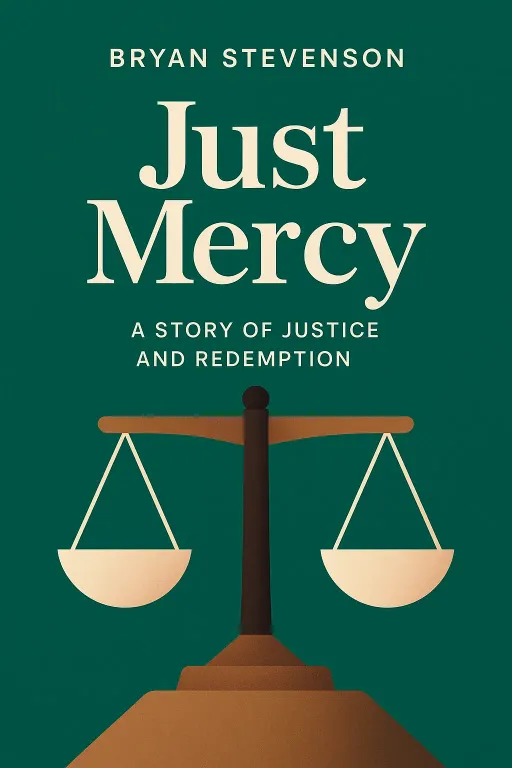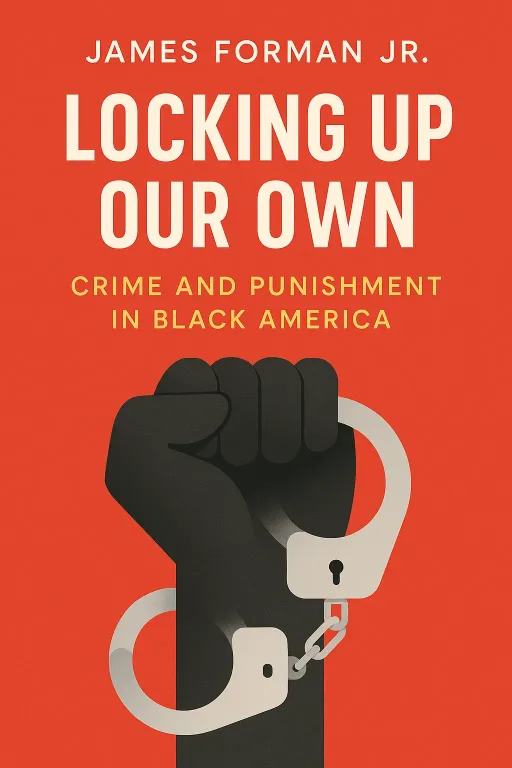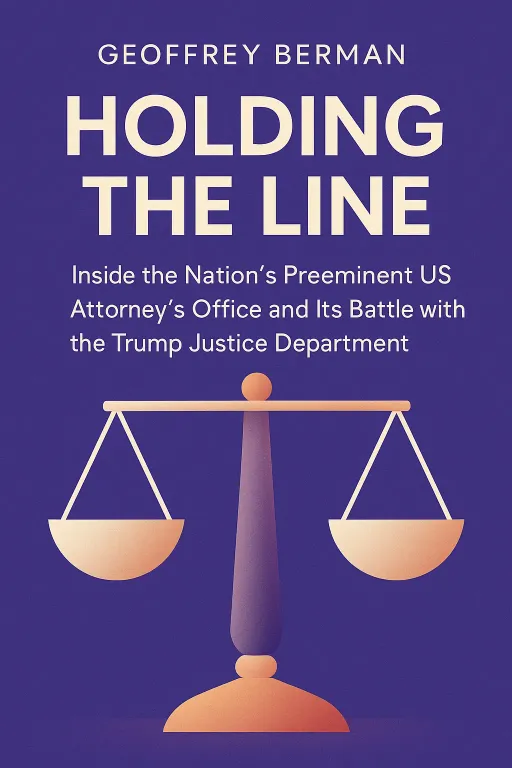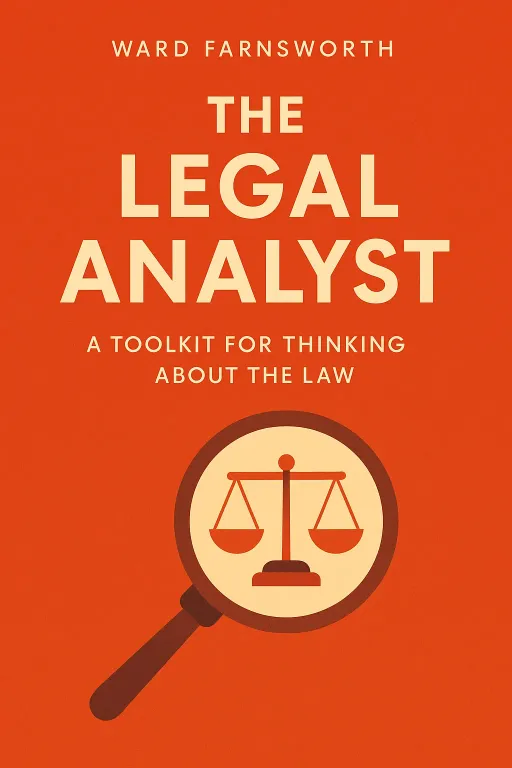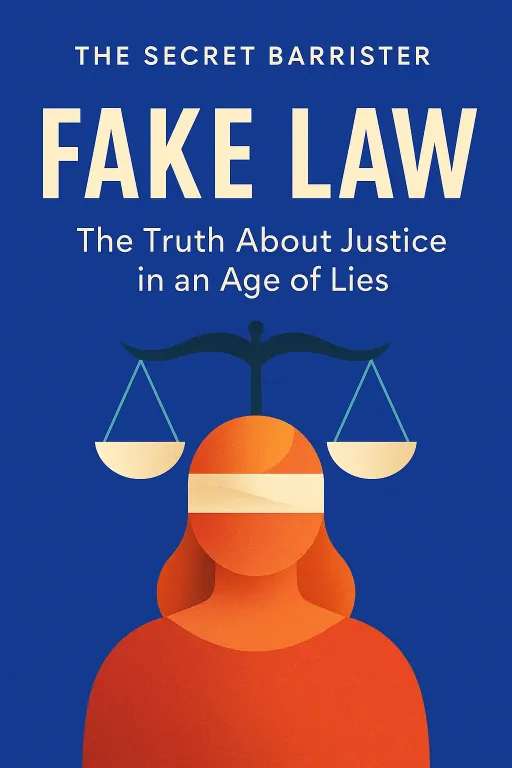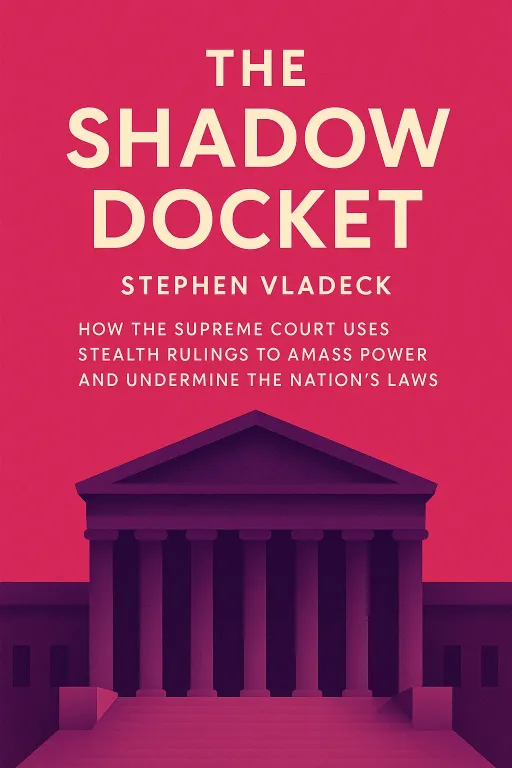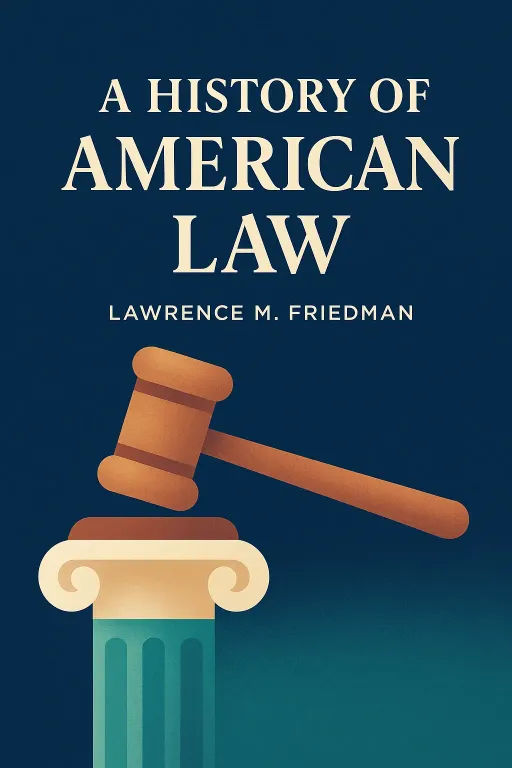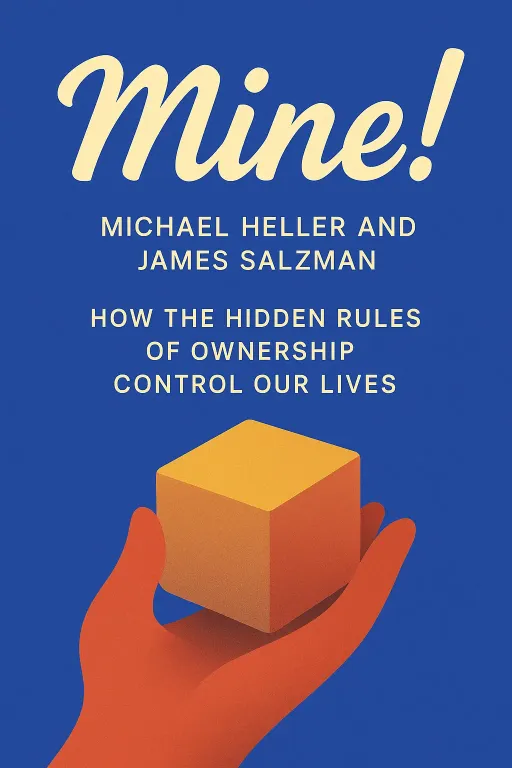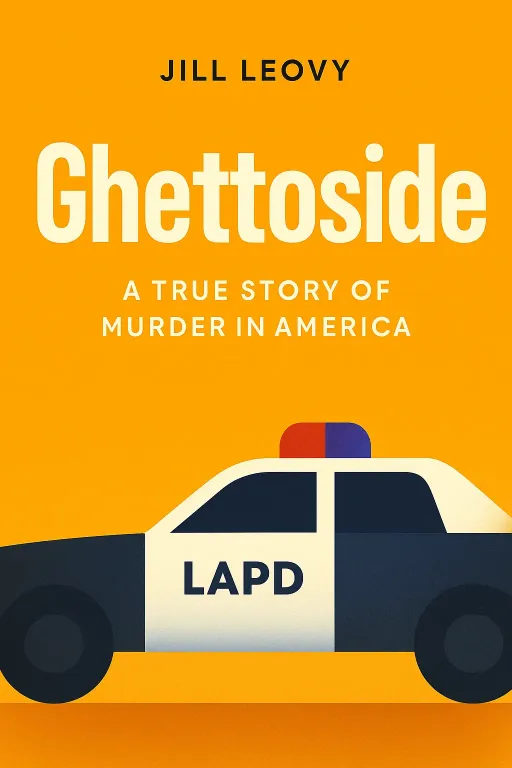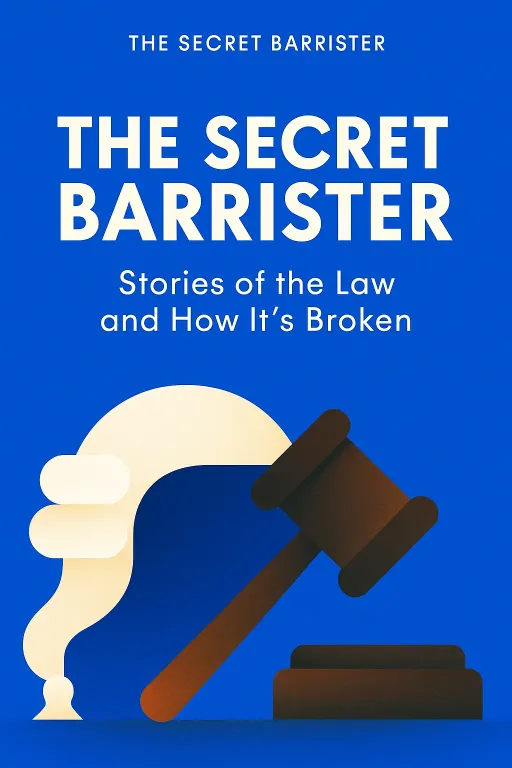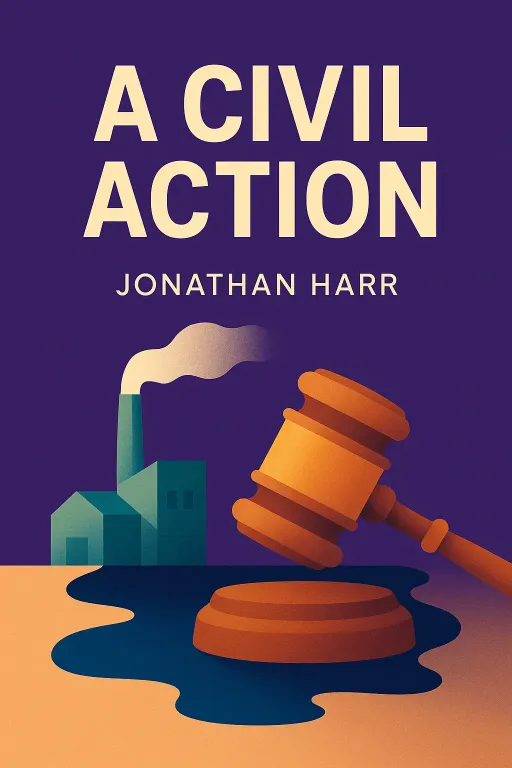
Anatomy of a Podcast Script
10 minOpening
Opening
Golden Hook & Introduction
SECTION
Michael: Alright Kevin, I have a question for you. When you hear the legal term "a civil action," what's the first thing that comes to mind? Kevin: Oh, that's easy. A civil action is what happens when you sue someone, win the case, and after you’ve paid all your lawyers, you have just enough money left over to cover the parking validation from the courthouse. Maybe. Michael: (Laughs) That is painfully, brilliantly accurate. And it perfectly captures the soul of the book we're talking about today: A Civil Action by Jonathan Harr. This isn't fiction; it's a true story that’s so wild, it reads like a legal thriller. Kevin: I’ve heard this one is a classic. What makes it so special? Michael: The sheer dedication behind it. The author, Jonathan Harr, didn't just report on this case; he embedded himself with the legal team for nearly a decade. He was in the strategy sessions, the witness preps, everything. The result is this incredibly detailed, human story that ended up winning the National Book Critics Circle Award. Kevin: A decade? Wow. Okay, so he had a front-row seat to the whole thing. Michael: A front-row seat to a slow-motion train wreck. And the book opens with the perfect symbol of that paradox you mentioned. We meet the lead lawyer, Jan Schlichtmann, not in a triumphant courtroom, but at his absolute lowest point.
The Anatomy of a Legal War: Idealism vs. The Machine
SECTION
Michael: It’s July 1986. Schlichtmann is this hotshot Boston lawyer, known for his sharp suits and his even sharper courtroom skills. But he’s woken up by a phone call. It’s the sheriff, politely informing him that his prized black Porsche is about to be repossessed. Kevin: Ouch. That’s not just losing a car, that’s a public humiliation for a guy whose image is everything. What happened? Did he have a gambling problem? Michael: Worse. He had a justice problem. He and his small firm had poured every cent they had, and millions they didn't have, into one single, monumental case: representing eight families from Woburn, Massachusetts, who believed their children got leukemia from contaminated drinking water. Kevin: Okay, so this is a classic David vs. Goliath story. A small firm against, who, some local polluter? Michael: Two of the biggest corporations in America: W. R. Grace, a chemical giant, and Beatrice Foods, a massive conglomerate. Schlichtmann's own financial advisor told him and his partners, "You’re living on vapor." They were taking on corporate titans with bottomless pockets, and the cost was astronomical. Kevin: Hold on, what could possibly cost millions of dollars before you even step into a courtroom? I picture lawyers just writing briefs and making calls. Michael: That’s the machine of modern litigation. To even have a chance, Schlichtmann had to build a case from scratch. That meant hiring a team of geologists to figure out how the chemicals traveled underground. We're talking a quarter of a million dollars just for that. He needed medical experts, so he flew them in first-class and put them up at the Ritz-Carlton for strategy sessions. One cardiologist was charging a hundred dollars an hour, even for the time he was sleeping. Kevin: For sleeping? Come on. That sounds less like a legal strategy and more like an ego trip. Some critics of the book have pointed this out, that maybe Schlichtmann wasn't a pure-hearted hero, but a guy who got addicted to the high-stakes gamble. Michael: That's the brilliant tension in the book! Harr doesn't paint him as a perfect saint. Schlichtmann is proud, he's arrogant, and he loves the finer things in life. But he also genuinely believed in this case. He saw these families, heard their stories of watching their children die, and became obsessed. He thought if he could just spend enough, investigate enough, and present the perfect case, the truth would win. Kevin: But the repossession of his Porsche tells us that the "truth" has a very high price tag. He's literally losing the symbols of his success in the pursuit of it. Michael: Exactly. He’s walking to the courthouse because he can’t afford a taxi, and a homeless man asks him for change. Schlichtmann has to admit he has none. In that moment, he realizes he's just one bad verdict away from being on that same street corner. He has bet everything—his money, his firm, his reputation—on the idea that the legal system will deliver justice. Kevin: And I have a sinking feeling he's about to find out that the system has other plans. Michael: That's putting it mildly. Because the war isn't just fought with evidence and experts. It's fought with procedure, psychology, and a rulebook that can be twisted in terrifying ways.
The Price of Truth: Justice in the Courtroom vs. Justice in the Real World
SECTION
Michael: As the trial approaches, Schlichtmann is facing two legal masterminds. For W.R. Grace, there's William Cheeseman. But the real ghost in the machine is Jerome Facher, the lawyer for Beatrice Foods. Facher is the complete opposite of Schlichtmann. He's a frugal, rumpled, old-school Harvard law professor who carries his legal papers in a battered canvas bag. He doesn't care about style; he cares about winning. Kevin: The seasoned old pro versus the flashy young gun. I like it. So what was Facher’s strategy? Michael: It was simple, and it was brutal. He understood that the families' greatest weapon was their story. The raw, emotional power of a mother describing her child's battle with leukemia is something no corporation wants a jury to hear. So Facher’s entire goal was to make sure the jury never heard those stories. Kevin: Wait, how can you have a trial about kids dying from contaminated water and not talk about the kids? That seems like the whole point. Michael: Welcome to the logic of the court. Facher, with a nudge to the judge, Walter Skinner, argued that the trial was too complex. He proposed breaking it into three separate phases. Phase one would be a "bloodless" scientific debate. The only question allowed would be: did the chemicals from Grace or Beatrice's properties ever reach the town's wells, and if so, when? Kevin: Let me get this straight. The jury would have to sit through months of testimony about hydrogeology—the science of groundwater flow—and no one could mention the word 'leukemia' or 'cancer' or 'sick children'? Michael: Precisely. The families were forced to sit in the courtroom, day after day, listening to highly paid experts argue about things like "hydraulic conductivity" and "cone of depression," while the story of their own suffering was deemed irrelevant for the time being. Kevin: That’s insane. It’s like trying to solve a murder, but the judge rules that you're only allowed to discuss the weather patterns on the day of the crime. You can’t talk about the victim, the motive, or the weapon. Michael: It's a perfect analogy. And it was a strategic masterpiece by the defense. They successfully turned a human tragedy into a sterile, academic exercise. They knew if they could bore the jury to death with science, or confuse them, they could win before the families ever got to speak. The emotional heart of the case was surgically removed. Kevin: And the judge allowed this? This is where the book gets controversial, right? The depiction of Judge Skinner is pretty harsh. Michael: It is. Harr portrays him as being overly deferential to Facher and hostile to Schlichtmann. The judge's decision to split the trial was a devastating blow. And it leads to this gut-wrenching climax. The jury comes back with a verdict. They find that W.R. Grace did contaminate the water. But for Beatrice, Facher's client, they say there's not enough evidence. Kevin: So a partial victory. But what about the families? Michael: That's the thing. Because of the jury's confusing answers about when the contamination happened, the judge dismisses the case against Grace anyway, pending a potential new trial on the medical evidence. Schlichtmann is left with nothing. He's lost against Beatrice, he has a muddled and possibly useless verdict against Grace, and his firm is millions of dollars in debt. He's completely and utterly broken. Kevin: Wow. So after all that, the machine won. Michael: The machine won. And in the aftermath, W.R. Grace offers a settlement. A "take it or leave it" offer of $8 million. Schlichtmann, defeated and pressured by his partners who are facing total ruin, is forced to accept.
Synthesis & Takeaways
SECTION
Kevin: So in the end, after all that money, all that obsession, what did it all amount to? The families got some money, which after legal fees, was about $375,000 per family. But they never got the public apology or the full truth they wanted. Schlichtmann was ruined. It feels so... empty. Michael: And that's the book's profound, and frankly, unsettling point. Harr uses this one case to show us that the legal system isn't a temple of truth. It's a machine for resolving disputes, often in the messiest, most expensive, and least satisfying way imaginable. The law has its own logic, and it's often completely divorced from our human sense of right and wrong. Kevin: It's that quote from one of the mothers, Patricia Kane, that really sticks with me. She said, "I think we’d all love to settle as long as we don’t have to compromise the verdict." They didn't just want money; they wanted the truth to be officially recognized. Michael: Exactly. They wanted the win to stand. But the system couldn't give them both. It could give them a check, but it demanded they give up the public acknowledgment of guilt. Schlichtmann himself said it best when he was wrestling with whether to fight on or settle. He said, "You never know when you’re being a hero or a fool." Kevin: It really makes you question the whole idea of a 'civil' action. There was nothing civil about it. It was a war. Michael: It was a war. And it leaves us with a really tough question that's even more relevant today: If the system is this stacked against the individual, what does it truly take for ordinary people to get justice against the most powerful entities in our society? Kevin: That’s a heavy question to end on. We'd love to know what you all think. Does this story make you feel cynical about the justice system, or does it inspire you to see how high the stakes are? Find us on our socials and join the conversation. Michael: This is Aibrary, signing off.
